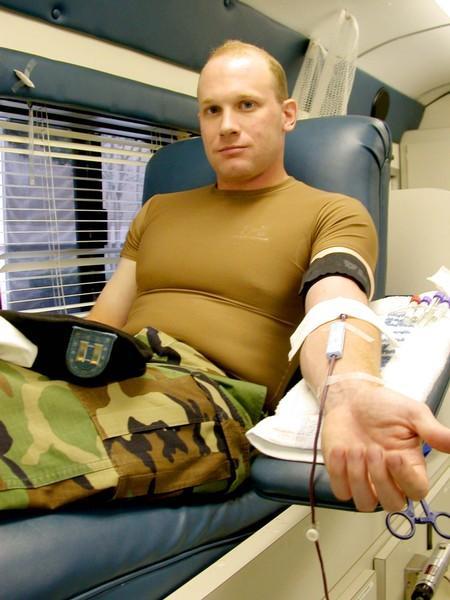The campus has seen the institution of three new buses near FreeSpeech Alley, but these buses are not to bring early morningstudents to their classes or bring commuters home to theirapartments — they are here to hopefully bring around blooddonors.
Our Lady of the Lake Hospital in Baton Rouge, United BloodServices and The Blood Center conducted a blood drive on campusthis week, encouraging students to donate and save a life.
The screening process potential blood donors undergo proves tobe very extensive and what some students may find discriminatory.When asked about past drug use or male-to-male sexual contact, somestudents feel awkward about answering such personal questions.
“It is awkward to answer questions about sex,” Macy Legan, abiology sophomore, said. “But this is my second time donating and Iknow people need it, so I donate.”
Michael McCartney, a blood donor technician at Our Lady of theLake, said the screening process the potential donors undergo is astandard operating procedure.
“The Food and Drug Administration is very strict,” McCartneysaid. “If someone who donates is a risk, then it is not worth it towaste their time and ours.”
Some students have found the questions pertaining tomale-on-male sexual contact especially discriminatory andinvasive.
“The questions are strictly based on sexual encounters,” NicoleSylvester, a donor recruitment representative for United BloodServices, said. “We are not discriminating against gay men orhomosexuality. We have to discriminate against anyone who answers”yes” to some of the questions listed. We have to discriminateagainst drug users, people with recent tattoos, even people whohave left the country within the past three years.”
Sylvester and McCartney both said gay men are at a higher riskof carrying the HIV/AIDS virus. According to the Center for DiseaseControl and Prevention, statistics in a cumulative report conductedin 2002 show men who have participated in male-to-male sexualcontact are the highest carrier of the HIV/AIDS virus.
“The FDA is always updating their research,” McCartney said. “Wehave to abide by their regulations, and until they tell us it isOK, we are not going to allow men who have had sex with other menfor whatever reason to donate blood.”
McCartney said the FDA is very consistent in updating theinformation. In January, diabetics were taken off the list ofnon-potential donors due to the new breakthroughs in oral insulinsupplements.
McCartney said until the FDA approves that male-to-male sexualcontact is not the highest risk group for HIV or AIDS, they willcontinue to screen for donors who fall under that category.
Although the donors undergo an extensive verbal and writtenscreening process, the blood centers and hospitals pass the bloodthrough many more medical tests. The tests screen for bacteria,HIV/AIDS, hepatitis, and other diseases or viruses the donor maynot have been aware of.
“It is not an issue about homosexuality,” McCartney said. “Thescreening questions are simply to avoid receiving blood from anyonewho the FDA has recognized not to be in compliance with the healthprocesses.”
McCartney and Sylvester said the procedures are merely toprotect a patient whose immune system may be too weak to fight offdisease.
“When you see a cancer patient, or a victim of a car accident,or a premature baby receive this blood, you see how much it cando,” McCartney said. “It is the most satisfying part of our job,and you want to make sure the blood they receive is 100 percentsafe.”
Most of the blood donors were compliant and comfortable with thescreening process.
“I donate any chance I get,” Carmelita Ferguson, a sociologysenior, said. “Six years ago my sister had premature twins and Igave one of the babies a direct blood donation. It was veryrewarding.”
Even students who have not had a personal experience with ablood donation find it necessary and important.
“I do it because it saves lives,” Kani Anderson, a generaleducation senior, said. “If I can save one life, then I’lldonate.”
Students screened for blood donations
September 24, 2004

Students screened for blood donations
More to Discover




